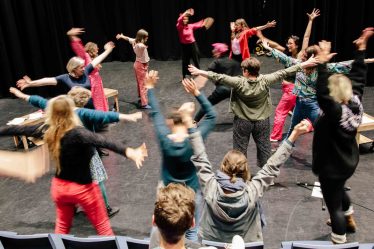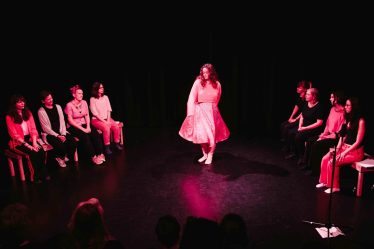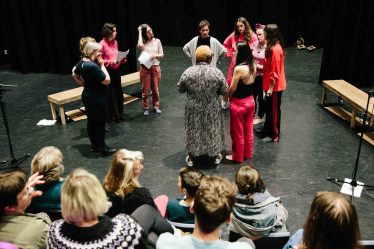Motherhood in a Climate Crisis: Story so Far
By Sophia Cheng, Motherhood in a Climate Crisis
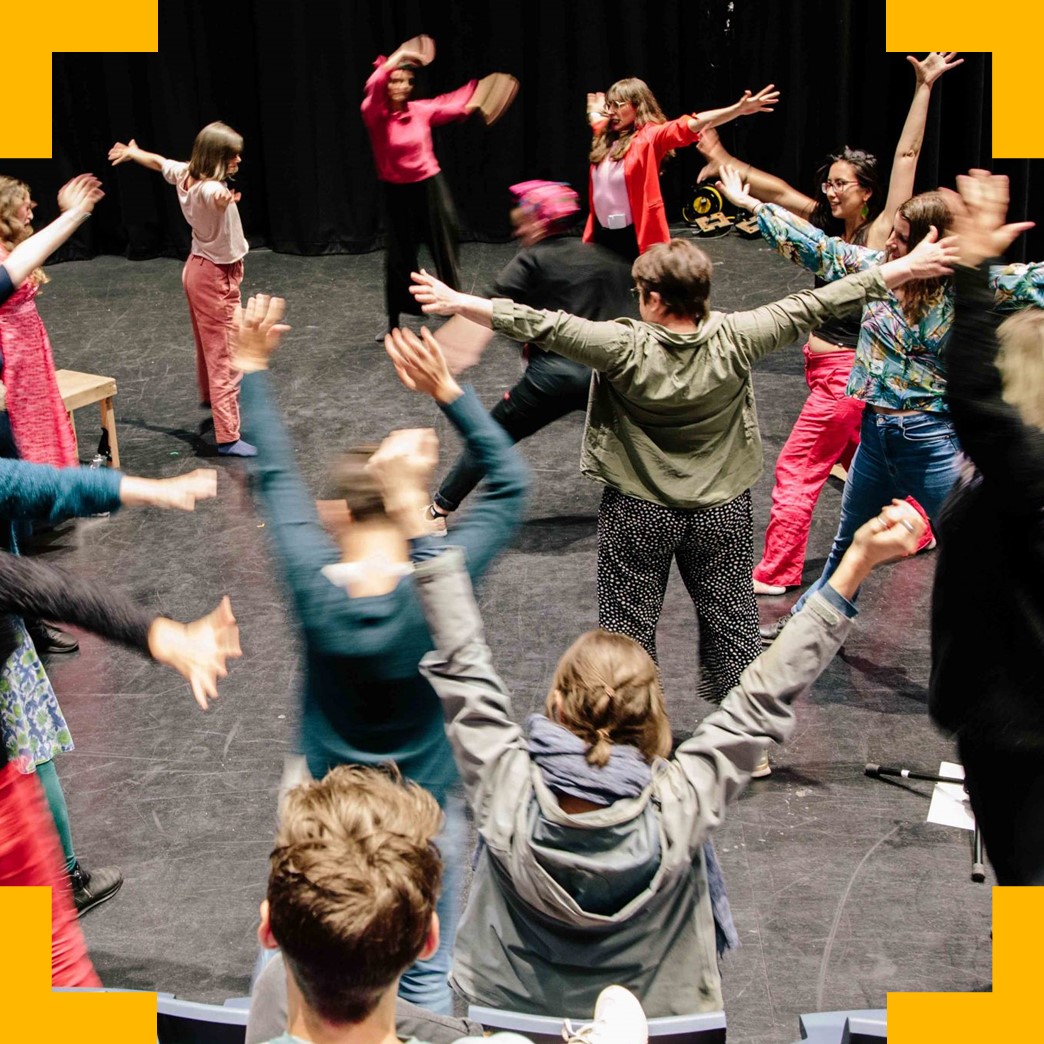
Since March 2022 when the project team met in person for the first time around Brigstow’s recipients cohort meeting, Motherhood in a Climate Crisis officially moved from the conceptual into the practical.

The aim of the project was to reduce isolation and stigma and stimulate ongoing conversation on the ways that Climate Change impacts women’s lives through a pilot series of creative theatre, story and improvisation workshops to explore, to clarify and communicate stories of motherhood in a climate crisis.
You can find out more about the rationale of the project here.
Now it was about the how.
Our story so far has been captured in this short summary video [4:41]
The Recruitment
The move from the conceptual to the practical was rapid. With a venue and dates secured, what followed was hectic activity to try to reach as many people and networks in the Bristol area. Liz was featured on Ujima radio, and Sophia was featured in a dedicated episode for the Climate Psychology Alliance podcast. Community groups, women’s centres, climate organising conferences and many other places were visited to try and raise awareness of the project.
A public session ran in May 2022, joined by 8 women, some travelling from as far as London. The team learned that in some circles the project circulated many times, but in others outreach had been less successful.
Liz and Jo ran a powerful session, with a mix of theatre-filled activities, reflective individual exercises, and group discussion. The eight women experienced a sample of what the 5-week process might be like. There was a range of different experiences of motherhood: some were mothers already; others were ambivalent, or not wanting to bring a child into the world as it is. There was an age range from 24-37. It was a full on day.
“It was gentle, kind and inclusive. I loved the physical movement and care. I felt like I was in a safe supportive space and it became really easy to connect with the other women in the room.” Participant
The process
Juggling different demands – notably childcare – 5 participants plus Sophia would go forward through to performance. From this point onwards Liz and Jo delivered a 5-week program exploring the two issues of motherhood and the climate crisis in care-filled and creative ways. Despite all that life can throw, the group showed up week after week. Relationships were building, trust was growing, care was centred. Jo McAndrews has written a separate blog focusing on this aspect of the project in particular. Read “Developing a culture of radical care in our theatre and storytelling project, Motherhood in a Climate Crisis“.
Liz’s facilitation exercises where groups of participants created tableaux on difficult topics opened up a conversation that staying purely in their heads would never have done. The observing group commented too on what they saw in the participants’ work.
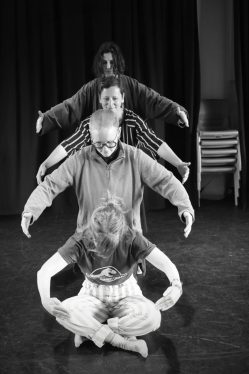
Addressing the lack of diversity
The project team felt the need to say it like it was: the group lacked diversity, from a race and ethnicity perspective – Liz being the only woman of colour. There was also not as broad a range of motherhood perspectives as the team knew to be out there. As a project that had been born from the personal experiences of a very particular demographic, it held an authenticity and self-evident truth in those communities but the team felt it was not successful in communicating the question and ideas to women with different experiences. There are rich questions to be explored in terms of how this question plays out across diverse communities. However, it became clear to the team they would not do this meaningfully in this initial process; i.e. a public live performance due to the concern that it might appear that the group were speaking authoritatively on the experience of women generally, when it was clear that many women and stories were not represented.
Liz suggested participants were invited into the team’s thinking, so that began the next weekend’s meeting. Each of the project team named the issue and shared their suggested proposition. There was agreement in the room, though with a twinge of disappointment around the absence of a performance. The team worked with this and landed on the ideal situation: focus on the filming and collecting the individual stories as monologues that could then sit next to future stories from a wider range of voices. Also, an open rehearsal could take place: participants could invite a close friend or two to witness their testimonies and honour the journey they’d taken.
It seemed there was a way forward that met everyone’s needs, culminating in a different kind of performance everyone could feel proud of.
The open rehearsal
In the early evening on 2nd July 2022, friends who had come to bear witness to these stories joined the group to watch an open rehearsal. They were invited into some of the warm up exercises, and the first run through, which went smoothly. The group was pleased it had decided to perform to a live audience as well as film it, and pleased also that the audience was small and very informal. It gave them the freedom to not worry about mistakes and to really enjoy sharing what they had created. An emotional experience for everyone.
“My lasting impression of the performance was the honesty, respect and emotional resonance of all the different positions.” Audience member
The team had brought in a professional therapist to host a group debrief with participants, in order to make sure care was threaded through their experience and also to take the conversation out to a slightly wider group. There was open space for anyone to share how they felt. The evening finished with an informal drink and chat and it helped that the whole team would meet again the next day to hold any vulnerability or unmet needs.
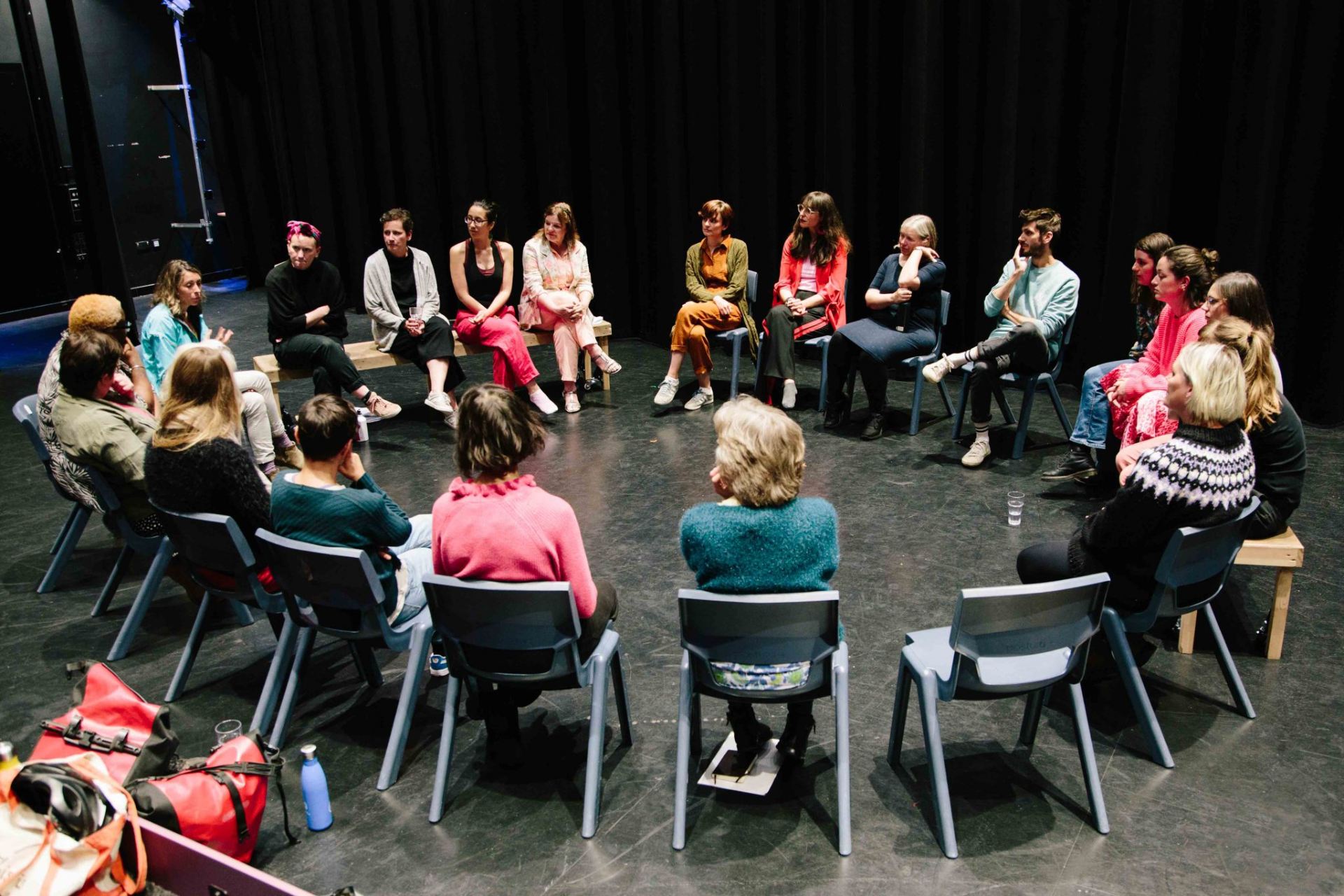
The team was so pleased that everyone who was part of the project was still totally committed right to the end. Addressing a subject as enormous as this, there was every possibility that it would be too difficult for some people to stay involved. The team believes that the way they worked together to create a culture of creativity, welcome, and care helped everyone to stay involved and be willing to contribute their vulnerable stories to a larger process that held everyone.
“I think this was the only true safe space I have ever been in.” Ruby, Participant
The stories
And so, finally, the project team are ready to share the individual stories. These were recorded straight to camera.
Disclaimer: These stories are full of heart. It took courage to write and perform them and it takes courage to watch them as well.
Each video is only a few minutes long. They are all different.
The questions
- How did watching one or more of these videos make you feel?
- Do you see yourself in any of these stories? What might you say that would be different?
- Would you share these conversations with anyone you know?
- What might your story of motherhood in a climate crisis be?
The support
- If you need one-to-one support after watching these films, please visit Climate Psychology Alliance and their support service.
- For group support CPA run Climate Cafes and a specific group for Parent/Carer Climate Circles twice a month
- The CPA have also compiled these list of resources for tackling eco-anxiety, including resources for under 18s. We are grateful for the services the CPA provides. Please consider supporting them.
- Sophia has synthesised some of the core learnings from Britt Wray’s latest book exploring this topic Generation Dread. You might find some helpful concepts here.
- A collaborative reading list that has been growing since the project’s inception can be found here (affiliate links)
With Thanks
To our funders, Brigstow Institute, Necessity and With Many Roots
Next steps
They are planning the next stage of this project, please get in touch if you would like to be involved. You can contact the project at motherXclimate@gmail.com
A longer version of this story, exploring more of the process, the niggles and the nuances can be found at With Many Roots: https://www.withmanyroots.com/motherxclimate/


